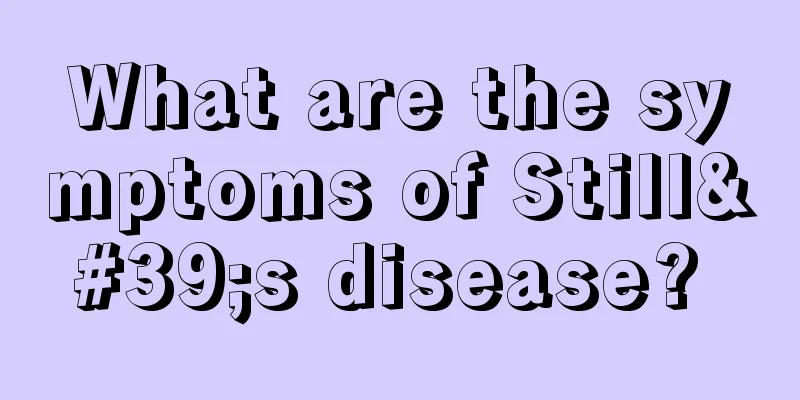Feeling nauseous and wanting to vomit in the middle of the night

|
Nausea and vomiting in the middle of the night is a health problem that many people have experienced. This symptom will not only affect the patient's physical health, but if this phenomenon exists for a long time, it will even affect the patient's mental state, making the patient unable to face work and study well due to lack of rest. Below we will introduce in detail the types and specific causes of nausea and vomiting in the middle of the night. 1. Central vomiting Vomiting caused by stimulation of the central nervous system and chemosensory trigger zones, which leads to excitement of the vomiting center, is called central vomiting. 1. Vomiting caused by central nervous system diseases: The characteristics of vomiting are that it is unrelated to eating, is projectile and accompanied by obvious headache, usually without nausea, and may be accompanied by varying degrees of impaired consciousness. Tuberculous meningitis and intracranial tumors often present vomiting as the first symptom. 2. Vomiting caused by drugs, chemical poisons, metabolic disorders, and toxins in the body: Vomiting is often accompanied by nausea and may be related to eating. Vomiting is prone to occur when stimulated by certain disgusting sights and smells. 2. Reflex vomiting Vomiting caused by impulses from visceral peripheral nerves stimulating the vomiting center through autonomic nerve afferent fibers is called reflex vomiting. 1. Digestive system diseases: Gastric and duodenal diseases: Acute gastritis is often accompanied by obvious nausea and vomiting, and upper abdominal discomfort. The upper abdominal pain can be relieved after vomiting; chronic gastritis is mostly characterized by nausea, and vomiting is mild; in case of pyloric obstruction, vomiting is severe and the amount of vomitus is large. The vomitus is mostly food from the previous day or meal and has a sour and smelly smell and does not contain bile; gastric cancer patients are also often accompanied by nausea and vomiting. Intestinal diseases: Acute enteritis is characterized by nausea, vomiting accompanied by diarrhea and abdominal pain; the early symptoms of acute appendicitis are nausea, vomiting, and upper abdominal pain, followed by migratory right lower abdominal pain and tenderness at the Margaret point; intestinal obstruction caused by various reasons often causes nausea and vomiting several hours after eating, and the vomitus is large in volume, often contains bile and has a fecal odor. Hepatobiliary and pancreatic diseases: Hepatitis and cirrhosis may cause persistent nausea and vomiting, accompanied by jaundice; acute and chronic cholecystitis may cause nausea and vomiting, but they are mostly mild, and are often accompanied by chills and fever, and jaundice may also occur; acute pancreatitis often causes severe nausea and vomiting, accompanied by severe upper abdominal pain and fever, and even shock. Peritoneal and mesenteric diseases: Acute peritonitis may cause severe nausea and vomiting, accompanied by peritoneal irritation signs and fever. 2. Other systemic diseases: It can be seen in angle-closure glaucoma, acute myocardial infarction, urinary tract stones, renal colic, ruptured ectopic pregnancy, etc. It is characterized by nausea and vomiting, accompanied by the clinical characteristics of the primary disease. 3. Vestibular disorder vomiting Vestibular disorder vomiting is seen in labyrinthitis, Meniere's syndrome, motion sickness, etc. The vomiting is usually severe and can be projectile, and is often accompanied by vertigo. 4. Neurotic vomiting It is more common in women and often recurs. The occurrence and aggravation of vomiting are closely related to the mental and emotional state. Mental stimulation, olfactory stimulation, noise, and disgusting food are common inducing factors. There is usually no obvious nausea but vomiting immediately after eating. The amount of vomitus is not large, and the patient can eat again after vomiting. It is often accompanied by neurotic manifestations. Despite long-term and frequent vomiting, no abnormal nutritional status occurs. |
<<: What to do if you have hiccups in the middle of the night
>>: Difficulty breathing in the middle of the night
Recommend
Can small cell lung cancer be completely cured?
Can small cell lung cancer be completely cured? A...
The most important complications caused by esophageal cancer
Esophageal cancer is a disease that mainly occurs...
How to spin the hula hoop correctly
Hula hoop was once a very popular sport, especial...
Threatened abortion, back pain, spotting for a few days
There are many causes of threatened abortion, suc...
Why does toothache happen? It is caused by these diseases
Toothache is not a disease, but it is really pain...
What is the spread and metastasis of liver cancer?
In recent years, liver cancer has become one of t...
How long can you live if colorectal cancer spreads
In recent years, more and more people around me h...
Is low pressure 61 normal?
Normal people's blood pressure is usually 120...
Fat particles all over the face
Many people have fat particles on their faces in ...
Can I breastfeed while sitting during the confinement period
During the confinement period, you don't have...
How to avoid liver cancer? Always eat this kind of food and beware of liver cancer
Most liver cancers occur after the age of 40, bec...
Calories of a brown sugar steamed bun
Nowadays, as people are becoming more and more pi...
Cold and diarrhea
Having a cold is already a very uncomfortable thi...
Can stage 3 colon cancer be almost cured?
Stage 3 colon cancer is not almost always curable...
What are the working principles of ultrasonic scalpel?
Wrinkles will appear on people's skin when th...









